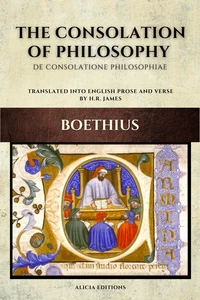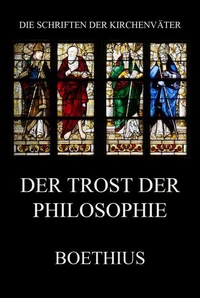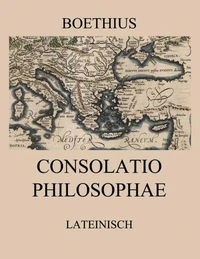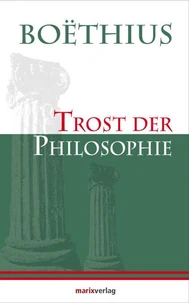The Consolation of Philosophy of Boethius
Par : ,Formats :
Disponible dans votre compte client Decitre ou Furet du Nord dès validation de votre commande. Le format ePub est :
- Compatible avec une lecture sur My Vivlio (smartphone, tablette, ordinateur)
- Compatible avec une lecture sur liseuses Vivlio
- Pour les liseuses autres que Vivlio, vous devez utiliser le logiciel Adobe Digital Edition. Non compatible avec la lecture sur les liseuses Kindle, Remarkable et Sony
 , qui est-ce ?
, qui est-ce ?Notre partenaire de plateforme de lecture numérique où vous retrouverez l'ensemble de vos ebooks gratuitement
Pour en savoir plus sur nos ebooks, consultez notre aide en ligne ici
- Nombre de pages216
- FormatePub
- ISBN978-3-8496-4986-9
- EAN9783849649869
- Date de parution27/07/2017
- Protection num.Digital Watermarking
- Taille355 Ko
- Infos supplémentairesepub
- ÉditeurJAZZYBEE VERLAG
Résumé
Boethius' best-known work is the "Consolations of Philosophy" written during his imprisonment -- "by far the most interesting example of prison literature the world has ever seen." It is a dialogue between Philosophy and Boethius, in which the Queen of Sciences strives to console the fallen statesman. The main argument of the discourse is the transitoriness and unreality of all earthly greatness and the superior desirability of the things of the mind.
There are evident traces of the influence of the Neo-Platonists, especially of Proclus, and little, if anything, that can be said to reflect Christian influences.
There are evident traces of the influence of the Neo-Platonists, especially of Proclus, and little, if anything, that can be said to reflect Christian influences.
Boethius' best-known work is the "Consolations of Philosophy" written during his imprisonment -- "by far the most interesting example of prison literature the world has ever seen." It is a dialogue between Philosophy and Boethius, in which the Queen of Sciences strives to console the fallen statesman. The main argument of the discourse is the transitoriness and unreality of all earthly greatness and the superior desirability of the things of the mind.
There are evident traces of the influence of the Neo-Platonists, especially of Proclus, and little, if anything, that can be said to reflect Christian influences.
There are evident traces of the influence of the Neo-Platonists, especially of Proclus, and little, if anything, that can be said to reflect Christian influences.






